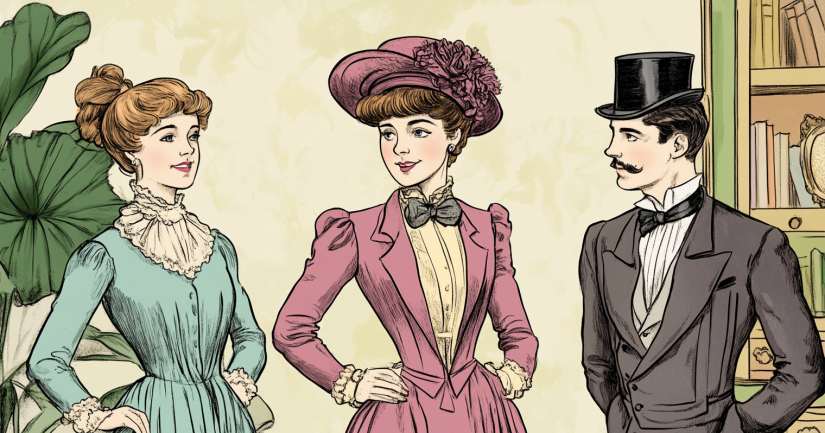
Uncover the cleverness and charm of Oscar Wilde’s timeless comedy with The Importance of Being Earnest Act 1 Quiz. This quiz invites you to explore the wit, humor, and social satire of Act 1. As you journey through this part of the play, you’ll meet characters who live double lives and navigate tangled relationships. Wilde’s sharp dialogue will guide you through the intricacies of Victorian society.
This quiz will test your understanding of the characters and their motivations. You’ll delve into the themes of identity and deception. Each question will challenge your grasp of Wilde’s clever wordplay and the play’s underlying messages. Are you ready to uncover the secrets within the play’s opening act?
You’ve stepped into Wilde’s world of mistaken identities and witty banter—ready for more? Continue the journey with The Importance Of Being Earnest Act 2 Quiz. Then, see how the comedy reaches its absurd conclusion in The Importance Of Being Earnest Act 3 Quiz. And if you’re confident you’ve mastered every twist and turn, take on the The Importance Of Being Earnest Full Book Quiz.
It’s Time – The Importance Of Being Earnest Act 1 Quiz Awaits
Engage with the absurdities and ironies that Wilde masterfully crafts. With each question, you will gain a deeper appreciation for the art of storytelling and character development. Whether you’re a student or a literature enthusiast, this quiz offers insights and reflections on human nature. So, put on your thinking cap and prepare for a delightful literary adventure!
The Importance of Being Earnest Quizzes – Are you as witty as Wilde?
What Happened – The Importance Of Being Earnest Act 1
Algernon Moncrieff receives his friend Jack Worthing at his home. Jack has come to town to propose to Gwendolen Fairfax, Algernon’s cousin. Algernon finds a cigarette case that Jack left behind during a previous visit. The case has an inscription that reveals Jack is known as Uncle Jack to someone named Cecily. Jack admits he leads a double life. In the country, he is known as Jack, but in the city, he uses the name Ernest.
Algernon reveals his own secret. He has invented an invalid friend named Bunbury, whom he uses as an excuse to avoid social obligations. Lady Bracknell, Gwendolen’s mother, arrives with her daughter. Jack proposes to Gwendolen, and she accepts. She says she loves him because she believes his name is Ernest.
Lady Bracknell interviews Jack to see if he is a suitable match for Gwendolen. She learns that Jack was found as a baby in a handbag at a railway station. Lady Bracknell disapproves of Jack’s origins and refuses to consent to the marriage.
Gwendolen and Jack plan to meet again. Algernon overhears Gwendolen’s address and writes it down. After everyone leaves, Algernon decides to visit Jack’s country home to meet Cecily. Jack and Algernon end the act with plans of their own to continue their double lives.
The Importance Of Being Earnest Act 1 – Quotes
- “To lose one parent, Mr. Worthing, may be regarded as a misfortune; to lose both looks like carelessness.” – Lady Bracknell, ‘Interviewing Jack about his suitability as a suitor for Gwendolen.’
“The truth is rarely pure and never simple.” – Algernon, ‘Discussing the nature of relationships and social expectations with Jack.’
“I have now realised for the first time in my life the vital Importance of Being Earnest.” – Jack, ‘After discovering his true identity and the significance of his fabricated persona.’
“The very essence of romance is uncertainty.” – Algernon, ‘Explaining his views on love and romance to Jack.’
“I never travel without my diary. One should always have something sensational to read in the train.” – Gwendolen, ‘Expressing her love for drama and self-reflection.’
“All women become like their mothers. That is their tragedy. No man does. That’s his.” – Algernon, ‘Reflecting on gender roles and familial influence.’
“Girls never marry the men they flirt with.” – Algernon, ‘Commenting on the complexities of courtship and social conventions.’
“I am sick to death of cleverness. Everybody is clever nowadays.” – Jack, ‘Expressing his frustration with superficiality and societal pressures.’
“In matters of grave importance, style, not sincerity, is the vital thing.” – Gwendolen, ‘Highlighting the superficial values of her social milieu.’
“Never speak disrespectfully of Society, Algernon. Only people who can’t get into it do that.” – Lady Bracknell, ‘Upholding the values and exclusivity of high society.’
